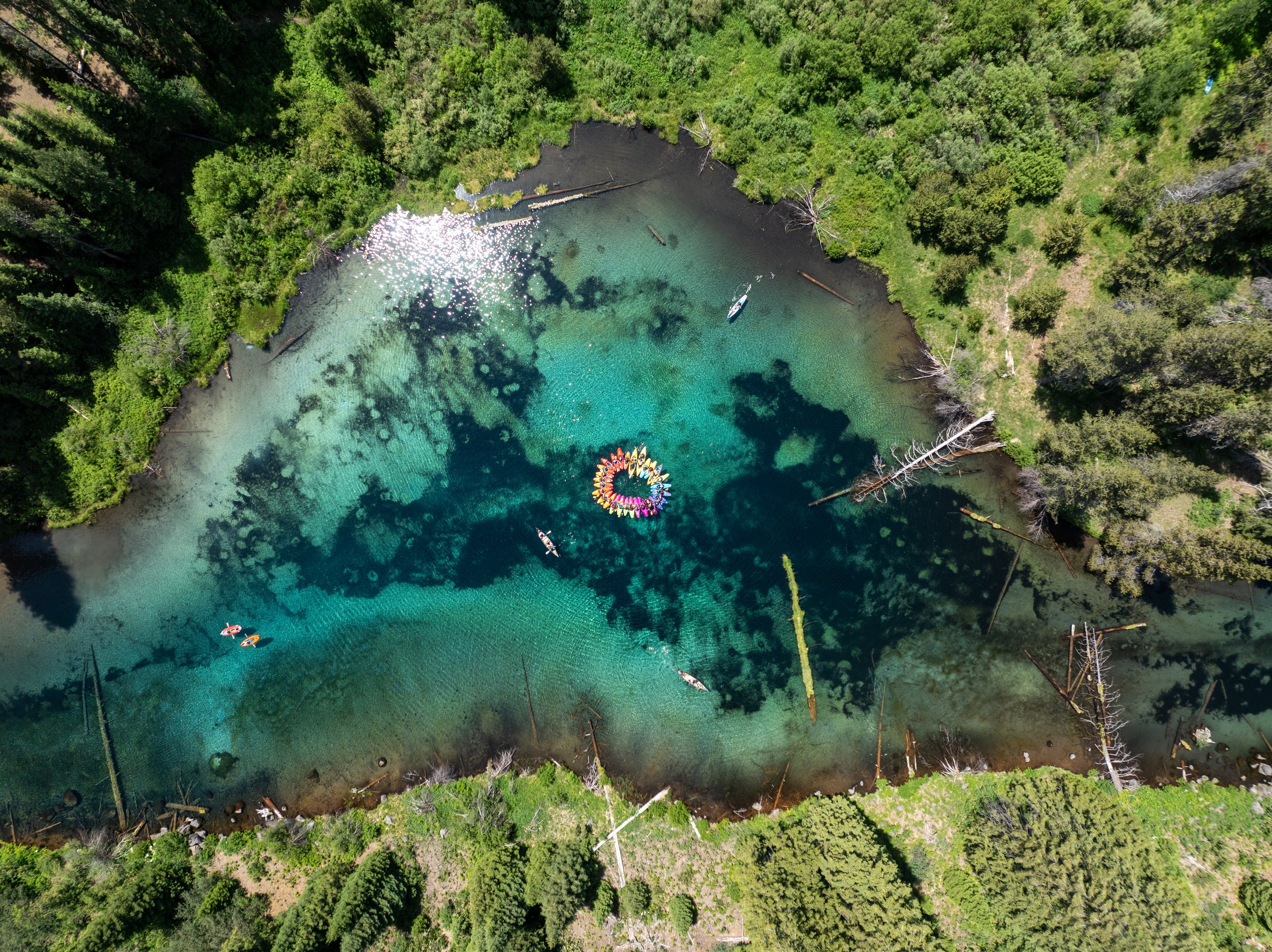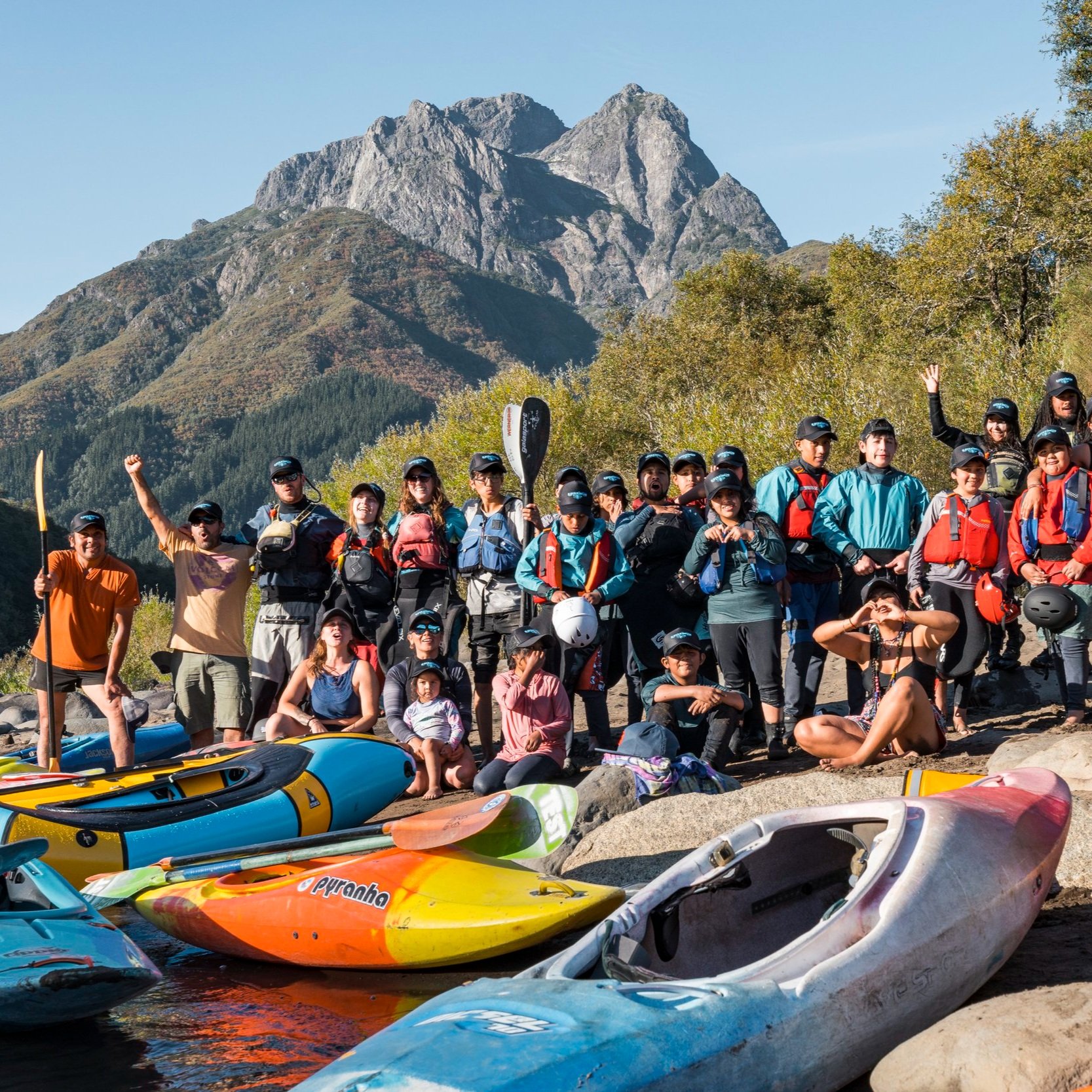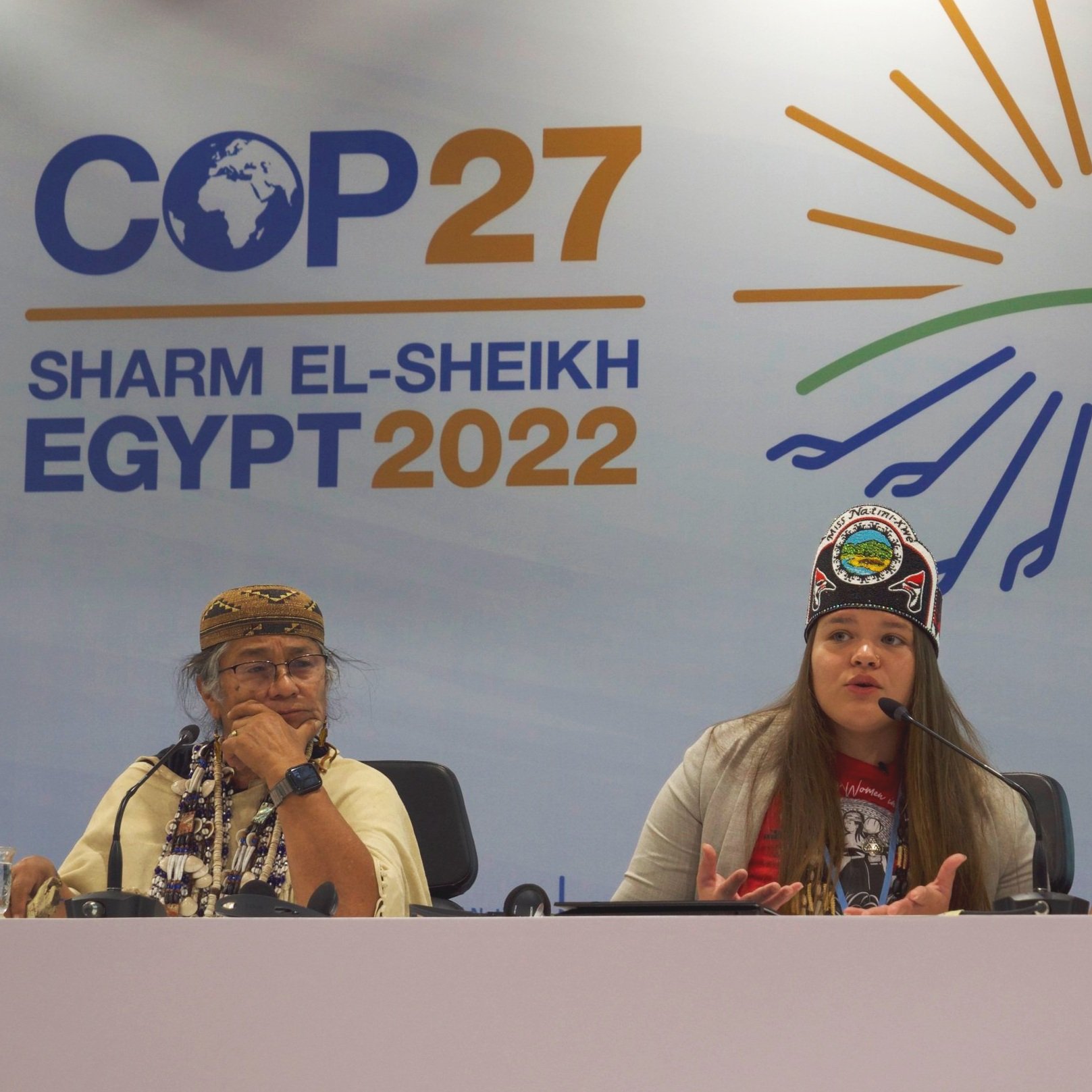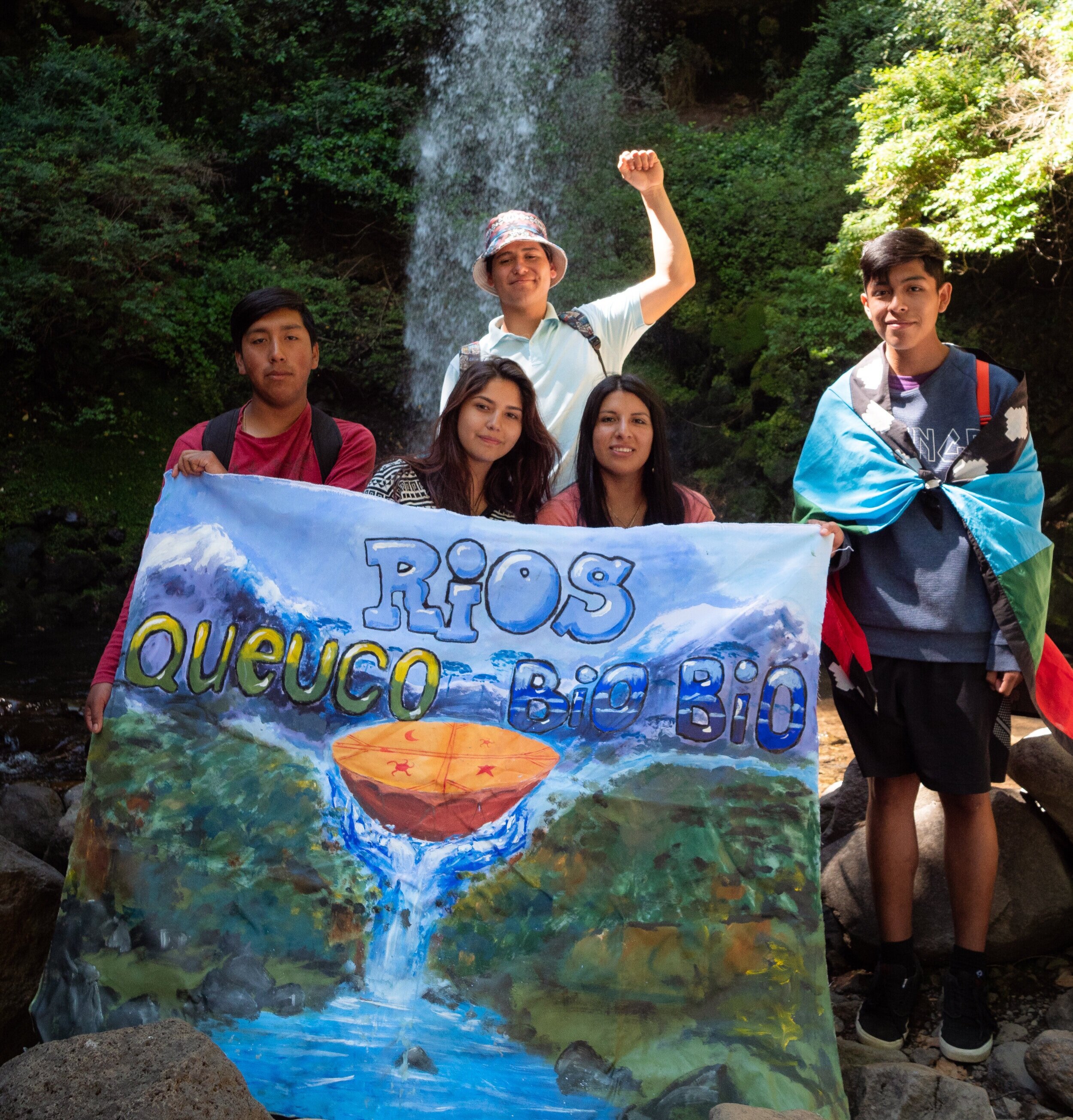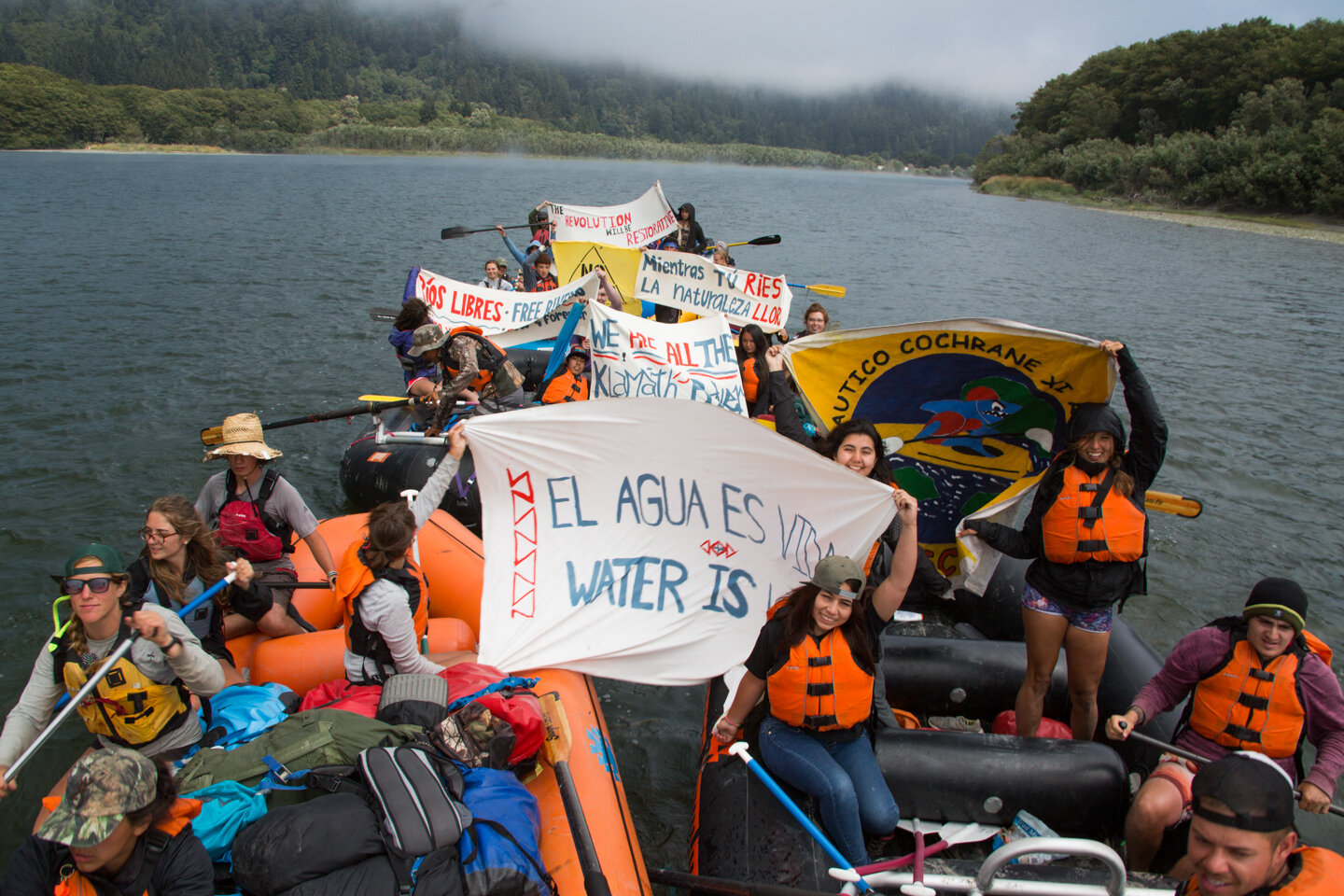
Mission
Ríos to Rivers inspires the protection of rivers worldwide by investing in underserved and Indigenous youth who are intimately connected to their local waters and supporting them in their development as the next generation of environmental stewards.
Ríos to Rivers
Founded in 2012, Ríos to Rivers programs have connected over 1,000 underserved and Indigenous students from 20 endangered river basins in seven countries. The programs have included students and community leaders from 21 Indigenous nations. We envision a world in which youth who are intimately connected to their local waters and tribal communities are equipped to become the next generation of passionate leaders for healthy rivers and communities.
Follow our First Descent
of the Klamath RiveR
We are in the middle of our historic first source-to-sea descent of the newly free Klamath River led by youth from our Paddle Tribal Waters program. Indigenous youth from and near the Klamath Basin started in the headwaters of the river in Southern OR and are spending 30 days descending 310 miles to the ocean in kayaks.
CURRENT PROGRAMS
WATCH A SHORT FILM ABOUT OUR PADDLE TRIBAL WATERS PROGRAM
Theory of Change
Through cultural exchanges, leadership, and river skills training we connect young people from rural and Indigenous communities who are threatened or recovering from impacts to the rivers that support them. These historically underrepresented communities have been left out of traditional top-down decisions for river development that ultimately damage the health of their rivers and communities.
Our students do not have the means to travel, nor have they been exposed to opportunities to participate in river recreation, meet people from other cultures, and interact directly with scientists, politicians, and community leaders.
Students gain a deeper sense of purpose, which extends far beyond individual growth, as they discover that they have the power to be a voice for their communities and their rivers. As we continue to create opportunities, where they can take positive action on issues, students are able to improve their communities for decades.
How we measure success
One of the most successful aspects of the Ríos to Rivers programs has been our ability to increase young people's pride for their homes. Rural youth can often feel that where they’re from is uneventful. This changes when peers come from halfway around the world to learn about their culture and the beauty of their watershed. Pride for home is key to protecting the surrounding ecosystems.
We know we are on the right track when new students become excited to host a new exchange. We know we are succeeding when this becomes a reality and alumni are dedicating themselves to organizing programs in their basins. This has allowed programs to be unique, as they are filled with community events, visits to ceremonies, and participation in cultural activities. We measure success by the number of students who have participated in long-term development and have transitioned from participants to hosts, environmental activists, and founders of kayak and rafting clubs.
“I was born half Native American. I represent two different tribes who are enemies and share the same hate for white people. And I’m somehow a conundrum of all of that. It has taken and is still taking me time to figure out who I am. Ríos to Rivers has made me feel a part of something bigger than myself and made me recognize just how loud of a voice I have. And just how unbelievably healing and connecting rivers are for everyone.”
-Jaren Roberson, Navajo-Dine and Hopi, Age 18 - After his participation in Ríos to Rivers, Jaren became a certified river guide for OARS Companies and is now a Ríos to Rivers board member.
The United Nations has approved more than 2,000 hydroelectric projects as carbon offsets.
Dams don't belong in the Paris Agreement.
Why are dams a disaster?
Methane Emissions: Reservoirs from dams emit methane which is at least 80 times more potent than CO2 as a greenhouse gas.
Rights of Indigenous Peoples: Dams displace Indigenous communities, submerge ancestral territory, and eliminate traditional food sources.
Fake Carbon Credits: Dam builders have sold carbon credits without accounting for methane emissions and for dams that would have been built without money from selling carbon credits.
Tell the UN: Do not authorize the use of carbon offset credits from hydroelectric dams within the Paris Agreement. Energy conservation and real renewables are the only paths to a sustainable future. Sign our petition here.
Take Action
Follow our Journey
“On behalf of me and the Mancomunidad Indigenous Communities of the Beni, Tuichi y Quiquibey Rivers, we would like to thank Ríos to Rivers for having had a great impact on our youth. They have returned very motivated to initiate actions in our river basins. Thank you for carrying out this program, which I now see is the best way to train new leaders for the future.”
- Ruth Alipaz Cuqui, Member of the San José de Uchupiamonas Indigenious Tribe in the Bolivian Amazon



